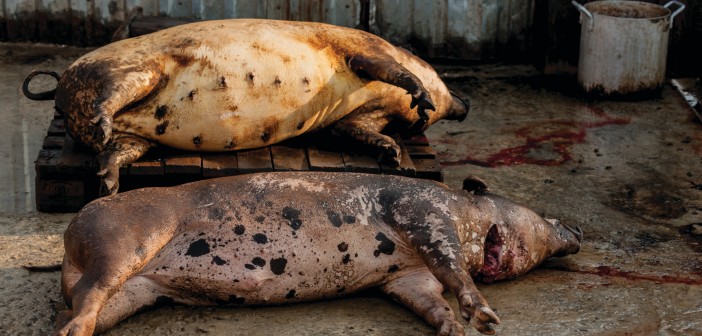A vaccine against African swine fever, that appears to be far more effective than previously developed vaccines, has been developed by US Government and academic investigators.
The research appears in the Journal of Virology, a publication of the American Society for Microbiology.
Technology Networks reported that in the study, both low and high doses of the vaccine were 100% effective against the virus when the pigs were challenged 28 days post-inoculation.
The research was motivated by the 2007 outbreak of African swine fever in the Republic of Georgia, said principal investigator Dr Douglas P. Gladue, senior scientist at the Agricultural Research Service within the, US Department of Agriculture.
Dr Gladue said: “This was the first outbreak in recent history outside of Africa and Sardinia—where swine fever is endemic—and this particular strain has been highly lethal and highly contagious, spreading quickly to neighbouring countries.”
This is also a new strain of the virus, now known as ASFV-G (with the G standing for Georgia).
Investigators at Plum Island Animal Disease Centre set out to develop a vaccine. Part of the process of developing whole virus vaccines involves deleting virulence genes from the virus. But when the researchers deleted genes similar to those that had been deleted in older ASFV strains to attenuate them, “it became clear that ASFV-G was much more virulent” than the other, historical isolates, because it retained a higher level of virulence, said Dr Gladue.
More work needs to be done to meet regulatory requirements for commercialiSation, Dr Gladue said.
“This new experimental ASFV vaccine shows promise, and offers complete protection against the current strain currently producing outbreaks throughout Eastern Europe and Asia,” he added.




